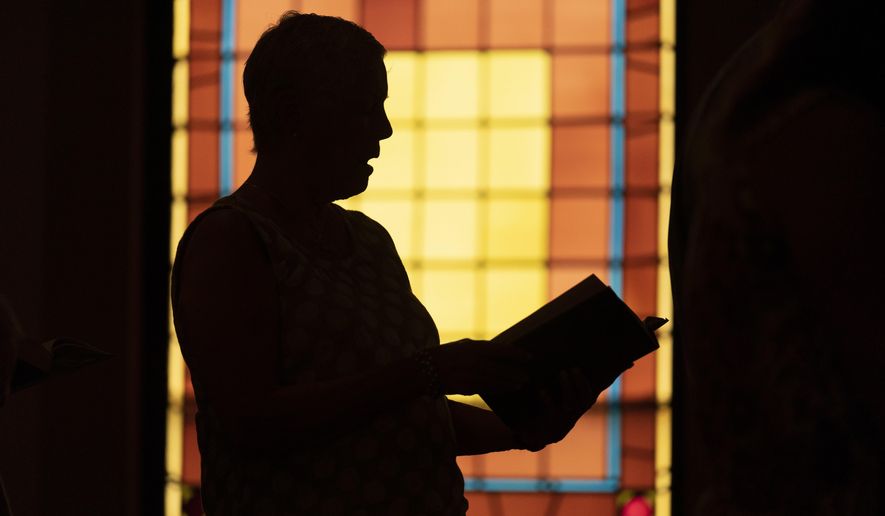The novel coronavirus pandemic took a toll on the public’s emotional well-being, but a newly released poll found that regular churchgoers report the highest levels of mental health while Democrats remain stuck at the back of the pack.
The Gallup annual mental-health self-assessment released Friday indicated that Americans are struggling with the aftermath of COVID-19, with just 34% rating their mental well-being as “excellent,” the same as last year and a 21-year low for the survey.
Those reporting the best mental state were the faithful: 44% of weekly churchgoers said their mental health was “excellent,” more than any subgroup tracked by Gallup and the only one to register higher levels of emotional health in 2021 than in 2019, before the pandemic.
Bringing up the rear were low-income earners and Democrats. Only 28% of Democrats said they had “excellent” emotional well-being, even though the survey was conducted Nov. 1-16, a year after Joseph R. Biden defeated Donald Trump in the 2020 presidential race.
By contrast, 42% of Republicans and 33% of independents reported “excellent” mental health. Both were well below the pre-pandemic 2019 ratings of 56% for Republicans and 44% for independents.
“The wellbeing of most groups mirrors the national trend, with their mental health scores worsening last year followed by little to no improvement this year,” said the Gallup analysis. “However, Democrats’ mental health rating has been steady at a relatively low level since 2019 while frequent churchgoers’ has been steadily high.”
Indeed, just 29% of Democrats reported “excellent” emotional well-being in 2020, almost the same as their pre-pandemic rating of 30% in 2019.
“Democrats’ ‘excellent’ rating of their emotional wellbeing has consistently been the lowest among the three major party groups, ranging from 28% to 30% over the past three years,” Gallup said. “Meanwhile, 44% of U.S. adults who attend religious services weekly rate their mental health more positively than do those who attend about monthly (38%) or seldom or never (29%).”
Americans’ “excellent” mental health rating remains at a 21-year low amid the COVID-19 pandemic, holding at 34% after dropping to that level a year ago. https://t.co/ySpzj2v6wy
— GallupNews (@GallupNews) December 5, 2021
Men also reported better mental health than women at 40% versus 29%, while 38% of people over 55 said their emotional well-being was excellent versus 30% of Americans ages 18-34.
Emotional well-being also correlates with income: 41% of those with a household income of more than $100,000 annually said their mental health was excellent, compared to 27% of those earning less than $40,000.
Prior to the 2020 pandemic, “this measure of Americans’ emotional wellbeing consistently reached 42% or higher, averaging 45% from 2001 to 2019,” said Gallup.
Those who rated their mental health “excellent” or “good” reached 81%, an uptick from last year.
“Today, another 47% rate their mental health as ‘good,’ which is a slight improvement from 42% last year,” said the analysis. “But the combined excellent/good score of 81% is still slightly below its pre-pandemic level of 85%.”
The 2021 self-ratings of physical health showed almost no change from previous years, with 27% saying their physical well-being was “excellent” and 51% reporting it was “good.”
“The pandemic does not appear to have affected Americans’ views of their physical health, which remain stable and lower than their mental health ratings,” Gallup said.
• Valerie Richardson can be reached at vrichardson@washingtontimes.com.




Please read our comment policy before commenting.